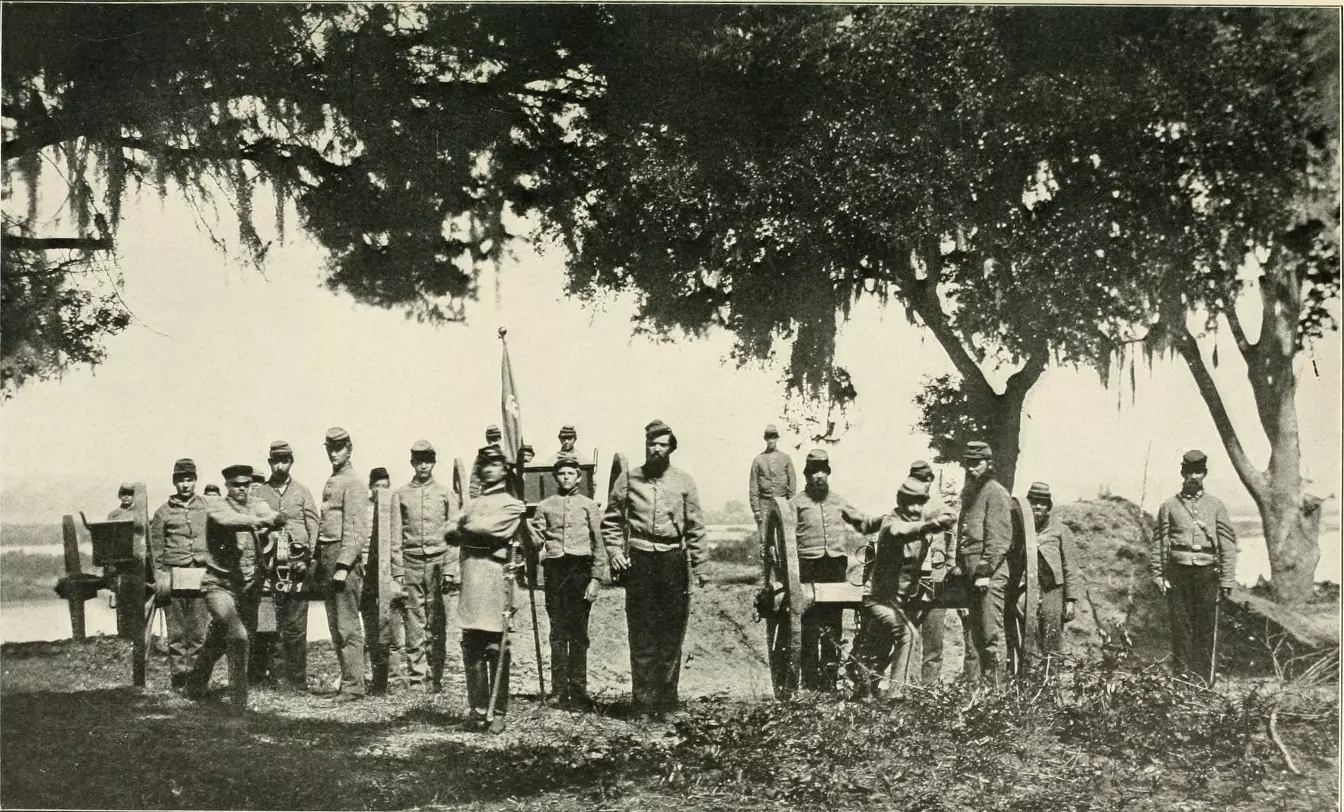
The bravery of Texans was established long ago. Most Americans know the story of the Alamo, defended without surrender, literally down to the last man. It is also true that the most decorated combat soldier during World War II was a Texan: Audie Murphy was not only awarded the Congressional Medal of Honor, but all four of the Army’s top awards for valor – three of them repeatedly.
In researching the history of flags, I spend a lot of time reading copies of original documents. Those records have more than their share of stories about Texans. I’m going to give you a couple from the Civil War.
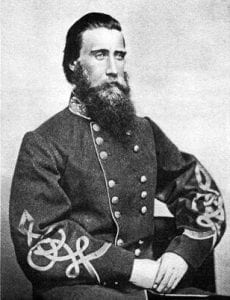
The first is an event on May 7th, 1861, at Elthem’s Landing on the York River in Virginia. Had to do with General John Bell Hood, a legendary name. Seems that Union Gen. McClellan had been trying to get to Confederate General Johnston’s troops to engage them when they were vulnerable. By the 7th of May Johnston was secure enough from serious harm, but his supply train was still at risk. He sent Hood’s Brigade to ensure the supplies remained safe from attack.
Anyway, a force of a few thousand federals disembarked from river gunboats. Now Johnston’s orders to Hood were, “…feel the enemy gently and fall back, avoiding an engagement, and draw them away from the protection of their gunboats…” Hood, however, found the federals away from the protection of their gunboats. So he attacked, and ended up driving them back a mile or two until they were again under the protection of the boats. Hood’s Texans killed or wounded 300 and captured 126. The Texans loss was 37 killed or wounded.
We have this report of a later exchange between General Joseph E. Johnston and General Hood:
Johnston: “General Hood, you have given an illustration of the Texas idea of feeling the enemy gently and falling back. What would you Texans have done, sir, if I had ordered you to charge and drive back the enemy?”
Hood: “I suppose, general, they would have driven them into the river and tried to swim out and capture the gunboats.”
Small wonder Hood and his brigade of Texans are so well-known today.
Bear with me through another story that I like. If you are a Civil War buff you may have heard the quote, but I bet you have never seen the full paragraph from the source, or the background on it.
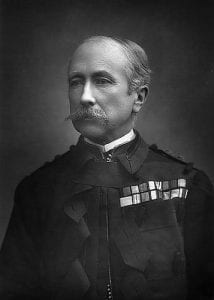
One of the most popular British generals of the nineteenth century was Garnet Wolseley (1833-1913). In 1861 Wolseley – then a colonel – was sent to Canada. Union forces had taken two Confederate diplomats from a British ship, and his assignment was to help prepare for a possible war with the Union. Wolseley decided to travel to the South, where he visited Robert E. Lee. Wolseley wrote about his trip in an article, “A Month’s Visit to the Confederate Headquarters,” published in a British magazine in 1863.
This much we definitely know about Wolseley’s visit, but the colonel is often stated to be the man described in the famous statement below. The quote is from a book entitled Hood’s Texas Brigade, written by Joseph Benjamin Polley and published in 1910. Polley was battle-hardened himself, wounded at the battle of Gaines Mills in 1862, and losing his right foot near Richmond in October, 1864. He later became an attorney and writer. Here is what we find on page 239 of Hood’s Texas Brigade:
“In the matter of dress, as above indicated, the First Texans were neither dudes nor dandies. Their fondness for and frequent indulgence in games of cards, naturally had a disastrous effect upon the seats of their trousers. One day when the army was marching from Sharpsburg (Maryland) toward the Rapidan (river in Virginia), General Lee and a distinguished English guest sat on their horses by the roadside — Lee naming the commands by States as they passed, and the Englishman observant and critical, his look, that of admiration. As the First Texas filed by, though, the look changed to one of derision, and noting it, General Lee said : ‘ Never mind their raggedness. Colonel— the enemy never sees the backs of my Texans.’ ”
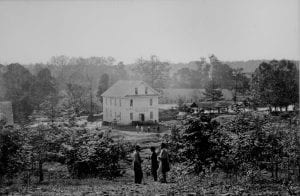
It has long been assumed that the “distinguished English guest” was Wolseley, and we can place the colonel with R. E. Lee in this period. I will let you decide. Nonetheless, Lee’s statement gives a sense of his high regard for his Texans. (And believe me, this is hardly the only record we have of Lee’s praise of these men.)
I will say one last thing. Hood was severely injured in the battle of Chickamauga. I have been to Chickamauga in northeast Georgia many times, and a more beautiful setting you will not find, but the sadness lingers to this day. (Only Gettysburg was more bloody – and Hood was seriously wounded there, too). At Chickamauga Hood was so badly wounded that the surgeon sent his severed leg with him as Hood went behind the lines, so it could be buried with him. Hood’s last order to the Texas Brigade paints the picture:
“Go ahead and stay ahead of everything.”
His men took his advice. Hood wasn’t finished with the war, though, so he stubbornly lived. Missing his right leg, he was soon back leading his men in battle. I suppose more than one Texan would say, “Well, sure, a man can ride with one leg.”
If you want more stories about Texans in battle, check out Part II of this series.

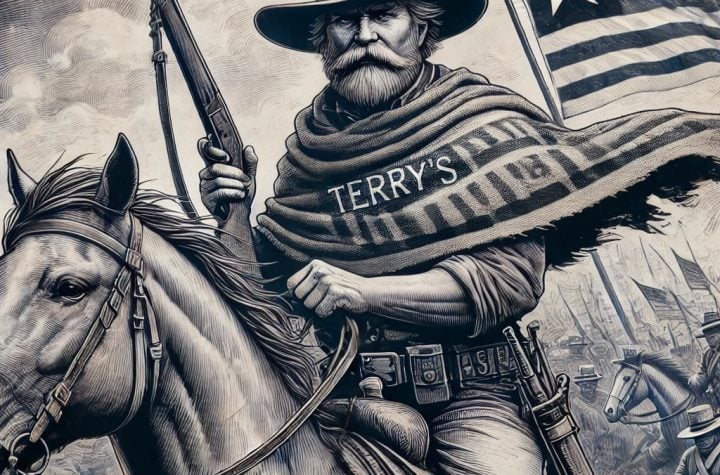
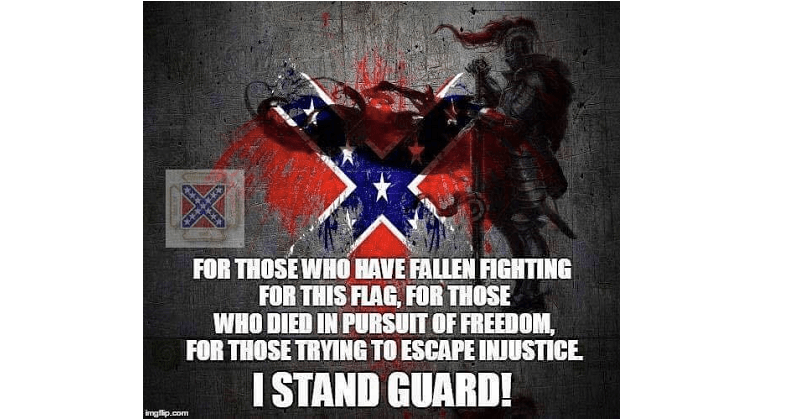
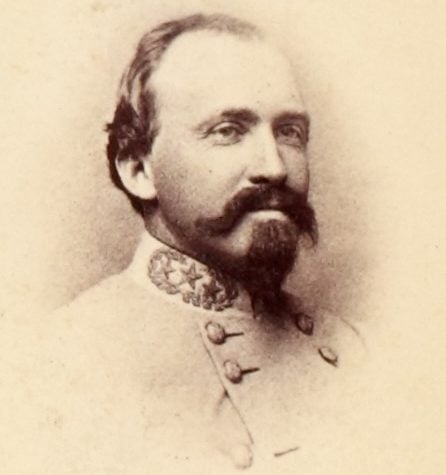
More Stories
General Dwight D. Eisenhower’s Reflection on Robert E. Lee
Sad Woke Charlottesville liberals Melt down infamous statue of Robert E Lee
NC Appeals Court rules for Town of Louisburg in removal of Confederate monument